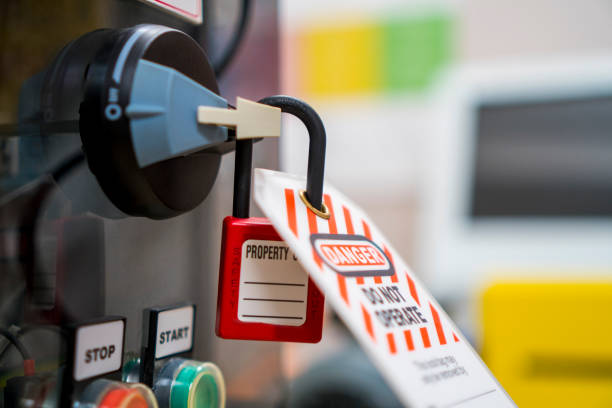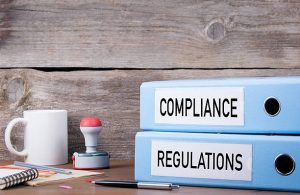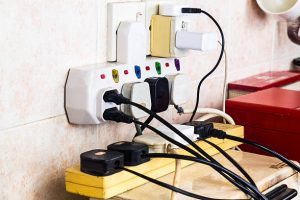As a business owner in Auckland, having an understanding of electrical safety in the workplace is essential for the health, welfare, and productivity of both employees and the company. The workplace should be equipped with effective procedures and precautions to prevent potential accidents or injuries due to electric shock or fire caused by faulty wiring.
Electrical safety has become even more important as businesses move towards digital technology. It’s essential that owners understand their legal obligations as well as best practice measures to ensure a safe working environment.
This guide outlines recommended steps and actions to take when it comes to maintaining electrical safety in the workplace. We will explain how to identify potential hazards and how to carry out regular inspections and maintenance of commercial electrical systems. We will also discuss what legal documents you may need, along with any specific industry regulations that apply at your particular work site.
Finally, we will provide information on additional resources available if you need assistance with planning or developing your electrical safety system. It is important for all business owners in Auckland to be aware of their responsibility to protect their employees from harm, so please take some time to read through this guide and make sure you are up-to-date with the latest legislation surrounding electrical safety in the workplace.

Legal Requirements for Electrical Safety in the Workplace
In Auckland, the Health and Safety at Work Act 2015 sets out the requirements for electrical safety in the workplace. As a business owner, it’s your responsibility to ensure that electrical installations and equipment are safe to use and maintain. This includes regularly inspecting and testing electrical equipment, and having any necessary repairs or upgrades carried out by a qualified electrician.

Tips for Maintaining Electrical Safety in the Workplace
Here are some practical tips for maintaining electrical safety in your workplace:
1. Use the Right Equipment
One of the most important things you can do to stay safe while working with electricity is to use the right equipment. Make sure that you have the proper tools and personal protective equipment (PPE) for the job. This includes items such as gloves, goggles, and insulated clothing.
2. Know How to Use Your Equipment
It’s not enough to just have the right equipment—you also need to know how to use it properly. Read the instructions carefully and be sure you understand how to operate each tool before using it. If you’re not sure, ask a supervisor or another experienced worker for help.
3. Be Aware of Your Surroundings
When you’re working with electricity, it’s important to be aware of your surroundings and potential hazards. This includes things like water, metal objects, and flammable materials. Keep an eye out for potential hazards and take steps to avoid them.
4. Follow Safety Procedures
When working with electricity, always follow established safety procedures. These procedures are in place to protect you and others from potential injuries or accidents. If you’re not sure what the procedures are, ask a supervisor or another experienced worker for help.
5. Take Precautions When Working Outside
If you’re working outside, be aware of potential hazards such as overhead power lines and wet ground. When working near overhead power lines, always use a ladder or other device that keeps you a safe distance away from the lines. If the ground is wet, avoid contact with it as the wet ground can conduct electricity.
6. Be Careful When Working With Extension Cords
Extension cords can be dangerous if they’re not used properly. When using extension cords, make sure that they are rated for the voltage and amperage of the equipment you’re using them with. Additionally, be sure to keep extension cords away from water as they can easily become damaged by moisture.
7. Don’t Overload Circuits
Overloading circuits is one of the leading causes of electrical fires. To avoid overloading circuits, plug only one high-wattage appliance or piece of equipment into each outlet at a time. Additionally, don’t use extension cords or power strips to get around this rule as this can also lead to fires.

8. Inspect Your Equipment Regularly
Another way to stay safe while working with electricity is to inspect your equipment regularly for signs of damage or wear. If you notice any frayed wires or damaged insulation, replace the damaged parts immediately before using the equipment again.
9. Don’t Do it Yourself
Always it is best to have an expert to fix critical electrical issues. Because most DIYs can cause serious damage instead of fixing an issue.
10. Call for help
If it is an emergency call the emergency services, or 24/7 electricians who provide you with support and assist in the situation until they arrive.
Electrical Hazards in the Workplace
There are several electrical hazards that can occur in the workplace, including:
Electric shock: This can be caused by contact with live electrical wires or equipment. It can result in burns, injuries, and even death.
Electrical fires: These can be caused by faulty wiring or equipment, or by overloading outlets or extension cords. Electrical fires can cause significant damage to property and can also result in injuries.

How to Prevent Electrical Hazards
Here are some steps you can take to prevent electrical hazards in your workplace:
- Use proper wiring and circuit protection. This can include using fuses and circuit breakers to prevent overloading of the electrical system.
- Avoid overloading outlets and extension cords. This can be done by using power strips with built-in circuit protection and by unplugging appliances when they’re not in use.
- Use ground fault circuit interrupters (GFCIs). These devices can help prevent electric shock by interrupting the flow of electricity in the event of a fault. They’re especially important in areas with a risk of coming into contact with water (e.g. bathrooms, and kitchens).
- Keep electrical equipment and cords in good condition. This includes repairing or replacing damaged equipment and cords.
- Follow the manufacturer’s recommendations for the use and maintenance of electrical equipment.
- Ensure that a qualified electrician carries out all electrical work.
- Use appropriate protective equipment when working with electricity. This can include gloves, safety glasses, and other protective gear depending on the specific task.
Additional Resources
If you’re looking for more information on electrical safety in the workplace, here are some additional resources:
- The Ministry of Business, Innovation, and Employment (MBIE) have a range of resources on electrical safety in the workplace, including guidance on the Health and Safety at Work Act 2015.
- The Electrical Workers Registration Board (EWRB) has information on the licensing and registration of electricians in New Zealand.
- The Electrical Safety Office (ESO) is a division of WorkSafe New Zealand and has resources on electrical safety in the workplace, including guidance on electrical installations and equipment.
By following these tips and adhering to the legal requirements for electrical safety, you can help ensure the safety of your employees and protect your business.
Conclusion:
In conclusion, electrical safety in the workplace is essential for the well-being of your employees and the protection of your business. As a business owner in Auckland, it’s important to be aware of the legal requirements for electrical safety and to take steps to prevent electrical hazards. This can include regularly inspecting and testing electrical equipment, hiring qualified electricians for electrical work, using protective equipment, training employees on electrical safety procedures, and having a plan in place for emergencies. By following these guidelines, you can help ensure a safe and healthy work environment for your employees.
FAQs
What are the legal requirements for electrical safety in the workplace?
In Auckland, the Health and Safety at Work Act 2015 sets out the requirements for electrical safety in the workplace. As a business owner, it’s your responsibility to ensure that electrical installations and equipment are safe to use and maintain. This includes regularly inspecting and testing electrical equipment, and having any necessary repairs or upgrades carried out by a qualified electrician.
What are some common electrical hazards in the workplace?
Some common electrical hazards in the workplace include electric shock and electrical fires. Electric shock can be caused by contact with live electrical wires or equipment and can result in burns, injuries, and even death. Electrical fires can be caused by faulty wiring or equipment, or by overloading outlets or extension cords. Electrical fires can cause significant damage to property and can also result in injuries.
What can I do to prevent electrical hazards in the workplace?
There are several steps you can take to prevent electrical hazards in your workplace. These include using proper wiring and circuit protection, avoiding overloading outlets and extension cords, using ground fault circuit interrupters (GFCIs) in areas with a risk of coming into contact with water, and keeping electrical equipment and cords in good condition. Additionally, it’s important to follow the manufacturer’s recommendations for the use and maintenance of electrical equipment, ensure that all electrical work is carried out by a qualified electrician, and use appropriate protective equipment when working with electricity.
Where can I find more information on electrical safety in the workplace?
There are several resources available for business owners looking for more information on electrical safety in the workplace. The Ministry of Business, Innovation, and Employment (MBIE) have a range of resources on electrical safety, including guidance on the Health and Safety at Work Act 2015. The Electrical Workers Registration Board (EWRB) has information on the licensing and registration of electricians in New Zealand. The Electrical Safety Office (ESO) is a division of WorkSafe New Zealand and has resources on electrical safety in the workplace, including guidance on electrical installations and equipment.

 info@strike.net.nz
info@strike.net.nz

